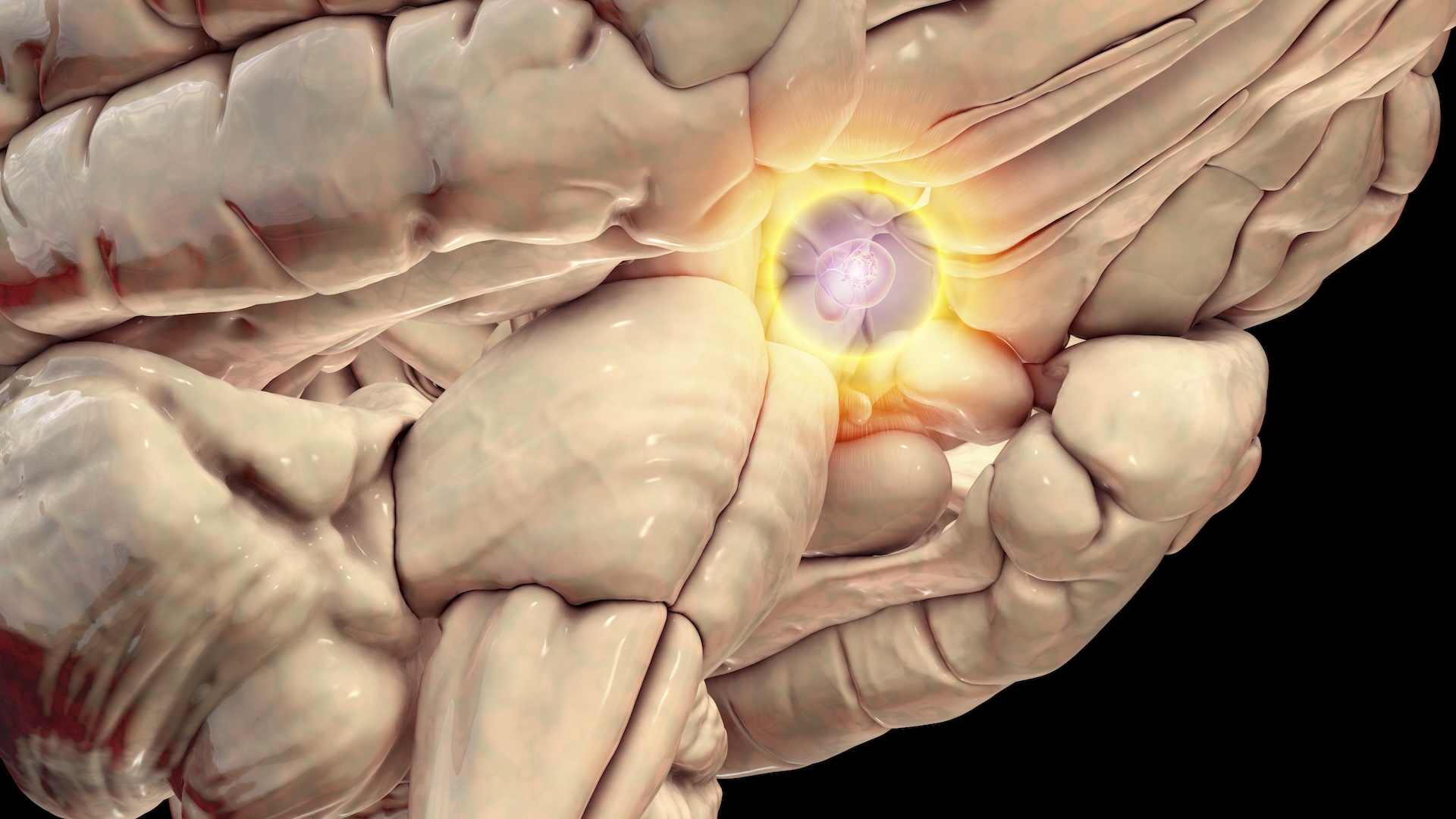
People developed to be each hunters and hunted; though Homo sapiens can take down giant prey, our species can be susceptible to large predators. Now, new analysis reveals how the human mind switches between these two modes of survival.
The reply lies within the hypothalamus, a tiny construction nestled deep in the midst of the organ. This historical mind area predates the evolution of vertebrates and thus seems in all vertebrate animals; comparable mind areas additionally exist in invertebrates. The hypothalamus is understood for performing very primary survival duties, corresponding to regulating physique temperature, triggering the discharge of hormones, regulating circadian rhythms and sending out hunger cues.
The brand new examine, revealed Thursday (June 27) within the journal PLOS Biology, discovered that the hypothalamus additionally manages the survival habits of switching between searching and being hunted.
The hypothalamus had beforehand been proven to tackle this process in different mammals, corresponding to mice. However the brand new analysis marks the primary time the area has been proven to take action in people, as nicely, the examine authors wrote of their paper.
Associated: Can animals really smell fear in humans?
The hypothalamus is small — concerning the measurement of a pea — and it is made up of even smaller nuclei which are too tiny for brain scanning strategies, corresponding to practical magnetic resonance imaging (fMRI), to picture.
The researchers used a number of strategies to beat this downside. One concerned figuring out the heart beat of cerebrospinal fluid — a transparent fluid that flows round and into gaps within the mind and spinal wire — after which correcting for this movement of their fMRI information. In addition they used a sort of artificial intelligence known as deep studying to detect and classify exercise patterns that may in any other case be too refined to catch.
The staff first had 277 volunteers play a online game wherein they needed to swap from searching habits to escaping habits. The sport consisted of a easy enviornment that the members moved an avatar round. The colour of the borders of the sector communicated whether or not the members needs to be searching or escaping from one other computerized determine.
These members’ brains weren’t scanned, however the researchers studied the volunteers’ actions to create a pc mannequin that might differentiate when somebody was in searching or fleeing mode.
Subsequent, 22 different members performed the identical sport inside an fMRI scanner. This sort of mind imaging takes an oblique measure of mind exercise that is based mostly on the motion of blood and oxygen by totally different mind areas. When a given area of the mind is energetic, the circulation of oxygenated blood to that space will increase.
For comparability functions, the identical 22 members additionally did a process that concerned simply transferring their avatar across the display, with none explicit drive to outlive.
The outcomes revealed that the hypothalamus acted as a management middle, facilitating the swap between predator and prey behaviors. It did this by speaking with a collection of different mind areas, together with the amygdala, a area identified for processing concern, and the ventromedial prefrontal cortex, which is understood for being concerned in decision-making duties, together with assessing threat in a given scenario. This swap concerned suppressing the habits from the earlier process.
The hypothalamus continues to coordinate the brand new habits after this swap happens, staying energetic all through the method.
“These findings lengthen our understanding of the human hypothalamus from a area that regulates our inside physique states to a area that switches survival behaviors and coordinates strategic survival behaviors,” the authors wrote.
Ever marvel why some people build muscle more easily than others or why freckles come out in the sun? Ship us your questions on how the human physique works to community@livescience.com with the topic line “Well being Desk Q,” and you might even see your query answered on the web site!


